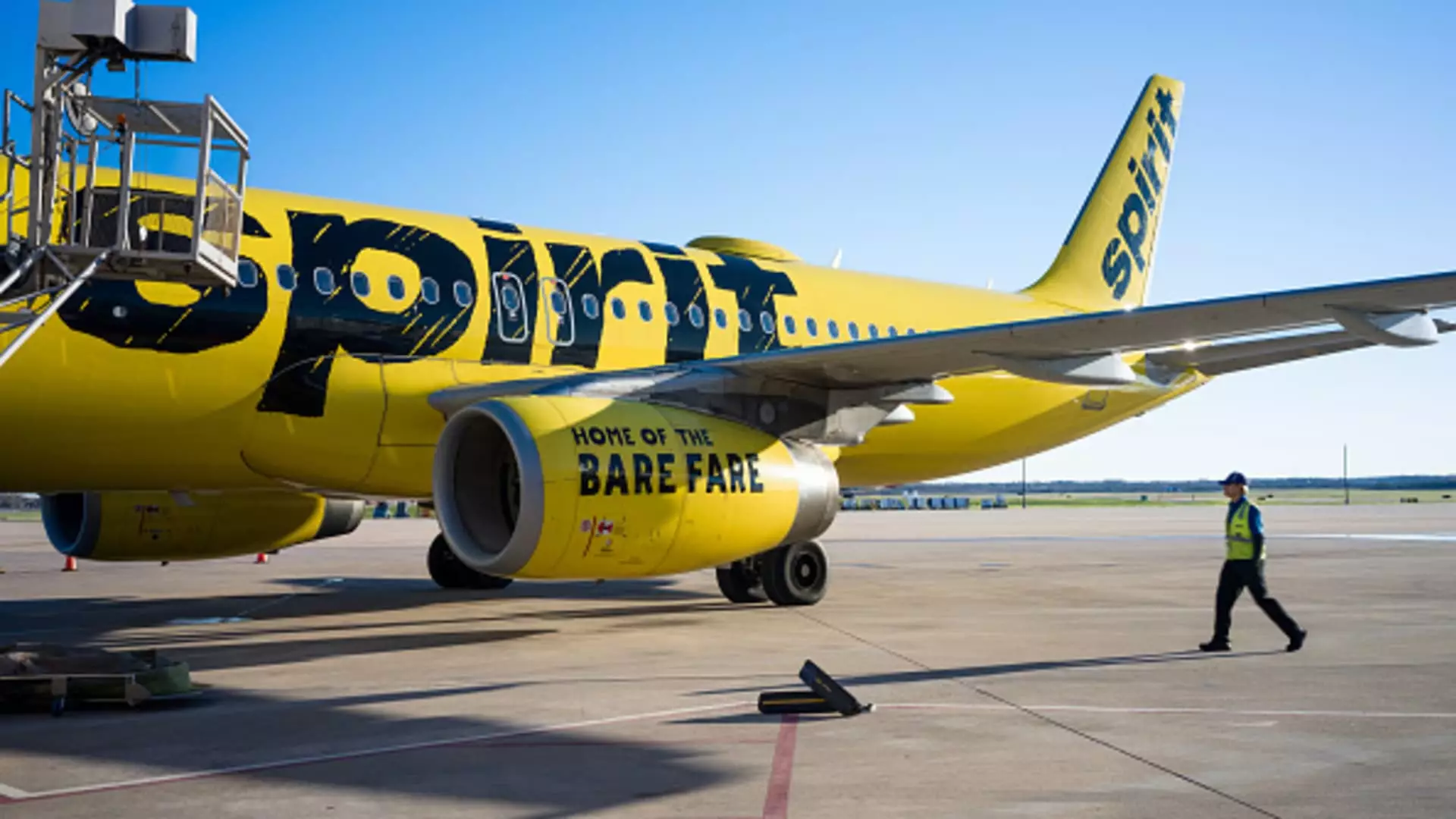Spirit Airlines recently announced that it will be deferring deliveries of new Airbus planes, as well as implementing pilot furloughs in an effort to improve its liquidity position. This decision comes as part of the company’s strategy to ensure a strong and profitable future amidst the challenges posed by the current competitive environment. CEO Ted Christie emphasized the necessity of these steps in a note to staff, highlighting the importance of securing the long-term sustainability of Spirit Airlines.
Deferred Airbus Plane Deliveries and Increased Liquidity
The airline plans to defer all Airbus planes that were scheduled for delivery from the second quarter of 2025 through the end of 2026, instead opting for delivery in 2030 and 2031. This move is expected to result in a liquidity boost of approximately $340 million over the next two years. By deferring these aircraft, Spirit Airlines aims to reset its business focus and address the changing dynamics of the competitive landscape, as stated by Christie in a news release.
Spirit Airlines has been grappling with the grounding of a significant number of its Airbus planes due to a Pratt & Whitney engine recall. The planned acquisition by JetBlue Airways earlier this year was thwarted by a federal judge ruling, which deemed the deal anti-competitive. To address these challenges, Spirit has secured monthly payments for the grounded engines through 2024, which is expected to add $150 million to $200 million to its liquidity.
The airline announced that approximately 260 pilots will be furloughed starting in September. This decision comes in the wake of existing leaves of absence for flight attendants, with no immediate plans for cabin crew furloughs. Spirit is closing its crew base in Atlantic City, New Jersey, and reassigning staff to other locations. The Air Line Pilots Association is exploring voluntary measures to limit the impact of pilot furloughs, as the airline navigates operational adjustments amidst its excess pilot capacity.
Spirit’s decision to defer Airbus deliveries comes at a time when the aviation industry is experiencing a shortage of aircraft, leading to changes in hiring and training practices by airlines. United Airlines, for example, is offering unpaid time off for pilots due to delayed aircraft deliveries from Boeing. The future of Spirit’s Airbus delivery slots remains uncertain, with industry observers speculating on potential remarketing opportunities for these slots.
Despite the current challenges, Spirit Airlines is positioning itself for a sustainable future by making strategic decisions to address its liquidity concerns and optimize operational efficiency. The airline’s upcoming financial outlook for the quarter and full year will provide further insights into its progress and prospects for navigating the evolving aviation landscape. As Spirit Airlines adapts to the changing industry dynamics, it remains focused on ensuring a strong and profitable future for its stakeholders.


Leave a Reply